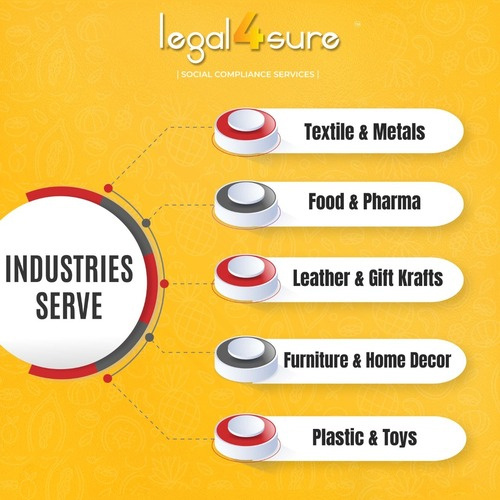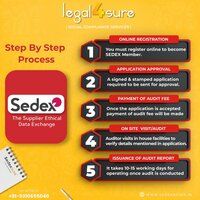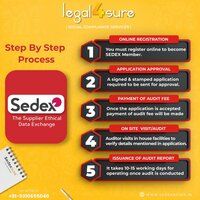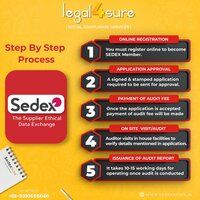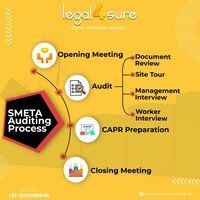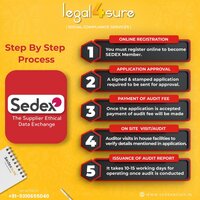Sedex Audit in Food Processing Industry
Product Details:
Sedex Audit in Food Processing Industry Price And Quantity
- 1 Unit
- 85000 INR/Unit
Sedex Audit in Food Processing Industry Trade Information
- New Delhi
- Paypal Cash Against Delivery (CAD) Cash on Delivery (COD) Cash Advance (CA) Cash in Advance (CID) Cheque
- 10 Unit Per Month
- 30 Days
- Yes
- Free samples are available
- As Per Customer
- Asia Australia Central America North America South America Eastern Europe Western Europe Middle East Africa
- All India
- ISO9001:2015
Product Description
Membership To participate in Sedex audits a company needs to become a Sedex member This involves registering on the Sedex platform and paying the membership fee
SelfAssessment After becoming a member the supplier is required to complete a self assessment questionnaire known as the Sedex SelfAssessment Questionnaire SAQ. The SAQ covers various aspects of social and ethical compliance such as labor standards health and safety environmental impact and business ethics
Audit Selection Based on the SAQ responses Sedex uses a risk based approach to select suppliers for audits Factors such as geographical location industry and past performance may influence the selection process
Audit Execution Once selected the supplier undergoes an audit conducted by an approved Sedex audit firm or an independent third party auditor The audit firm typically contacts the supplier to schedule the audit and provides information about the scope objectives and requirements of the audit
OnSite Audit The auditor visits the suppliers premises and conducts an onsite assessment The audit involves reviewing documents conducting interviews with workers and management and inspecting facilities to verify compliance with social and ethical standards The auditor may focus on areas such as employment practices health and safety working hours wages and management systems
Audit Report Following the onsite audit the auditor prepares an audit report detailing the findings observations and recommendations The report is usually shared with the supplier and sometimes with the buyer who requested the audit
Corrective Actions If any noncompliance or areas for improvement are identified during the audit the supplier is expected to develop and implement corrective action plans to address these issues Sedex encourages a continuous improvement approach where suppliers work to resolve any identified shortcomings and strengthen their social and ethical performance
FollowUp Audit In some cases especially if significant non compliances were found during the initial audit a followup audit may be scheduled to verify that the supplier has taken appropriate corrective actions
Data Sharing Sedex allows suppliers to share their audit reports and other relevant information with their customers or other Sedex members through the platform This helps companies access and evaluate the social and ethical performance of their suppliers
Its important to note that Sedex audits are not certifications but rather assessments of a suppliers social and ethical performance However Sedex members may use the audit reports to demonstrate their commitment to responsible sourcing and meet the requirements of their customers or industry initiatives.

Price:
- 50
- 100
- 200
- 250
- 500
- 1000+

